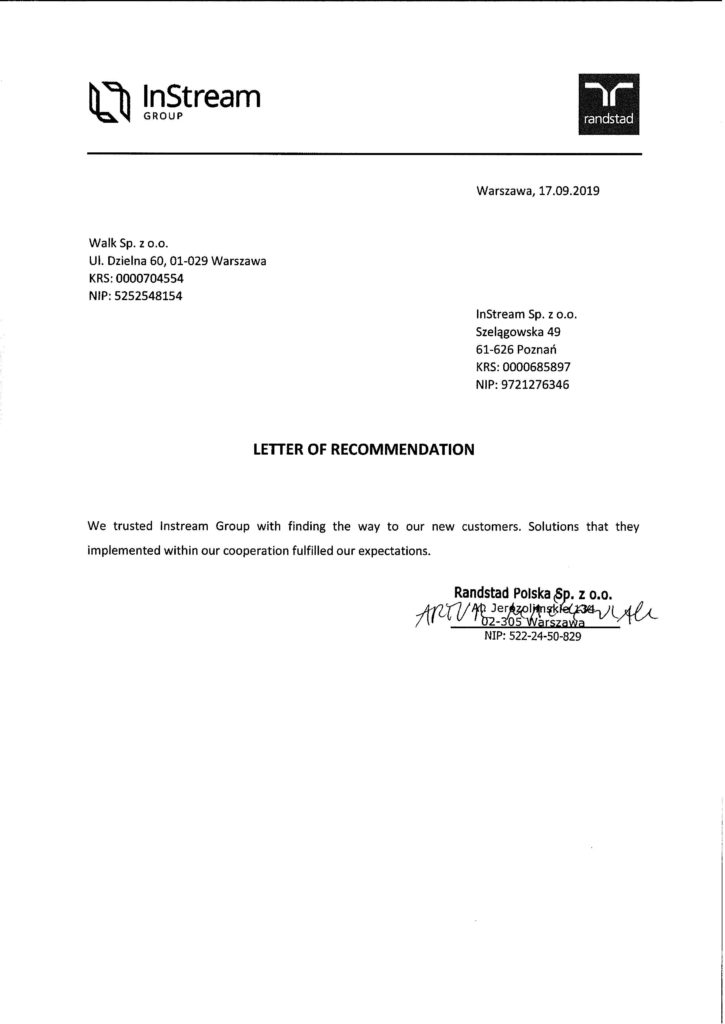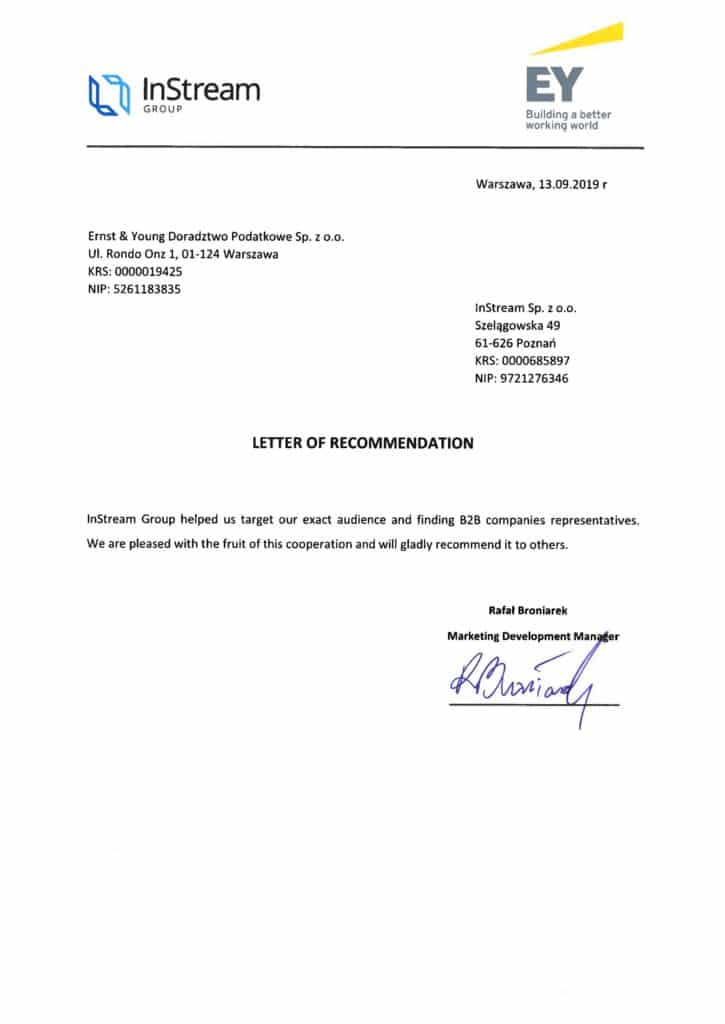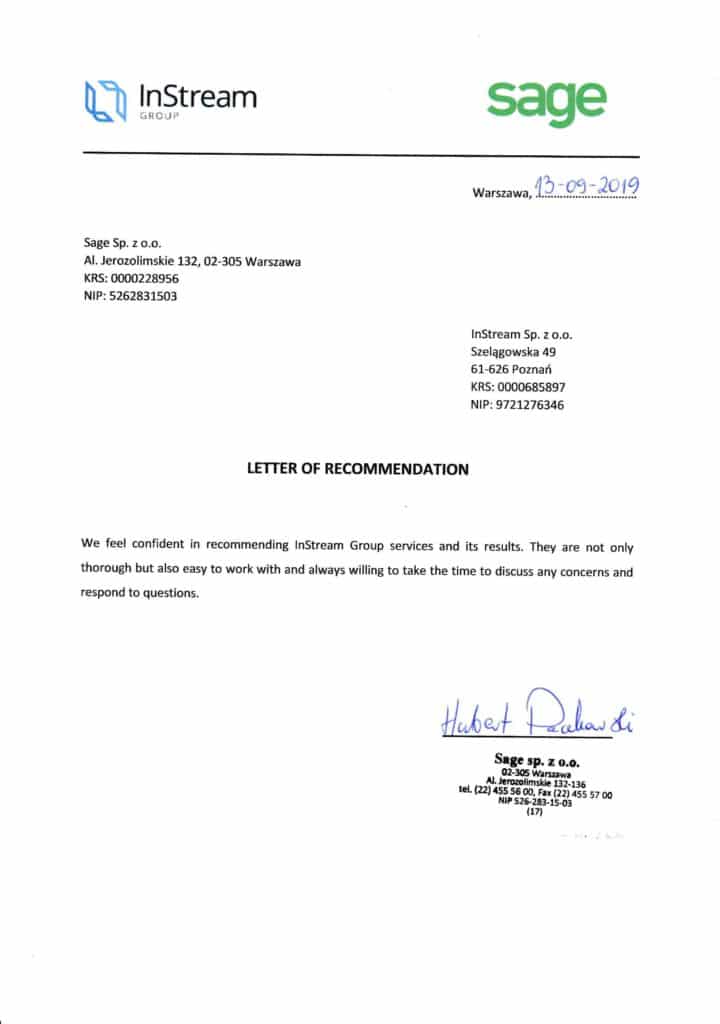Those responsible for building an effective marketing department face a big challenge. Especially when they have never been seriously involved in marketing, are recruiting for the first time and do not know what is needed. Apparently, this problem is the domain of start-ups only, but even larger companies that are maturing to the decision to create a professional marketing department face such a challenge. Then how to deal with the fact that we don’t know what we don’t know ( so called “unknown unknowns”) and create a marketing department that brings profits to the company?
1. Characteristics & Qualities of a Leader- What a CMO Should be Like
First of all, you need to build a strong foundation for this department. Start recruiting from the top down, i.e. from the leader to the specialists. If you are the CEO or already have other roles in the company, do not take on the additional position of CMO. Do this not because you might turn out to be a poor marketing manager, but because you will not be able to dedicate yourself 100% to just this one thing. There is nothing worse than a person responsible for key tasks in the creation of a marketing campaign who is elusive and difficult to reach for the staff preparing the campaign. The leader must be someone who:
- takes full responsibility for the marketing effort
- devotes 100% of his/her time to marketing tasks
- has marketing knowledge and experience
All these 3 points should be fulfilled simultaneously, without exception! Especially in regard to the second point, in many companies there is a tendency to treat marketing people as those who always have time, so they can get other tasks. While conducting recruitment interviews, I have come across candidates who, in their previous companies, performed a social media specialist role and an administrative function at the same time. I also know a large company where a person working in the HR department is responsible for its marketing and branding. It’s also important that as a CEO you don’t pigeonhole your marketing team as part-time people right from the start. In my opinion, this kind of mindset is created when the marketing department is seen solely as a cost. Avoid this.
2. Single Specialization Theory
There is a theory that an effective marketer specializes in one narrow field and is good in at least two. For example, people who specialize in SEO and are good at web technologies and data analysis will be independent in their work. Whereas those who know graphics in a broad sense and also understand the principles of UX and UI will be able to cope with a large number of tasks on their own in a digital marketing team.

I myself am a strong advocate of this theory. I assume that in order to break through in a competitive market, you need to gain enough speed to jump over a pit, otherwise you fall into it and disappear among other companies. To make it more explicit let me illustrate it with a practical example. In SEO, the majority of traffic is generated by sites that occupy top positions. According to IgniteVisibility.com the first position collects 20.5% of traffic, the second 13.32% and the third 13.14%. For the ninth and tenth positions it is only 5.52% and 7.95% respectively.
This means that if we hire a person who knows something about social media, a little bit about e-mail marketing and has done a few SEO projects, it is difficult to expect that such a person will position a website in the highest positions. We can rather expect last positions on the first page, which will provide only 5-7% of traffic for a given phrase. If we take a specialist who is very good only in this one area, we have a better chance of reaching positions 1-3 where the benefit is 2 to 4 times bigger!
In my opinion, a similar principle applies to every marketing department. A social media specialist can get a company up to speed in this area and leapfrog the boundaries of being unnoticed, so that the company earns a sort of bonus for being at the forefront.
To further demonstrate that the single-specialization theory is the way forward, one can refer to the history of science and discovery. Centuries ago, it was the philosophers – multidisciplinary people with expertise in the natural sciences – who led the way in scientific discovery. Aristotle, Plato and Descartes all made discoveries in fields that today we would call mathematics, physics, biology or chemistry. Over the years of the Nobel Prize’s existence, its winners have been individuals in increasingly narrow fields of science. Since 1991, no Nobel Prize in physics has been awarded to a single person. It looks like great things can only be done as a team of specialists. I think it is no different in marketing.
3. Four Specialization Categories
Out of the many specializations in marketing, you can classify them into 4 basic categories such as:
- Technical
- Creative
- Social
- Management
Thus, the technical category will include, for example, PPC marketing, SEO, messenger marketing or data analysis. The creative category includes copywriting, video marketing or graphics in a broad sense. Social will include social media marketing, e-mail marketing and, for example, public relations. The last one concerns team management, marketing strategy or budget.
I present it in detail in the graphic below:

I believe that in most cases a good marketing team in the B2B industry, consists of at least 4 people, one person for each category. A key role in this model is played by the marketing director with an excellent ability to analyse data and set marketing strategy. He or she will be largely responsible for recruiting the rest of the team. During the first few weeks, the CMO should analyse historical data on customer acquisition sources. A well-prepared strategy should focus on those customers who deliver the greatest long-term return for the company.
In a large number of cases, the biggest source of B2B leads for companies is Google search through organic and paid results (technical category) and social media (social category). People working within these two categories need content in the form of text, video or graphics (creative category) to support their activities. All we need to complete the team is a person who will give direction, take responsibility for everything and set the strategy. Such a person is the aforementioned marketing director (management category).
When building a well-functioning marketing team, it is important to focus on ensuring that individuals’ skills and knowledge do not overlap. This is particularly important in the case of young companies and a marketing department of just a few people. Team specialization should be built along with the growing knowledge as to the effectiveness of individual channels.
To summarize the conclusions reached so far:
- Find the right person who will be responsible for the whole team.
- Recruit people who are specialists in the areas most promising in terms of promoting your business.
- Consider building a team from individuals who fall into these 4 categories.
4. Cloud Of Marketing Skills
Marketing people often have a bit of a salesperson in them. They can sell themselves particularly well at recruitment interviews. A few popular buzzwords on a CV, such as growth hacking, big data or omnichannel, may be enough to buy their way into a potential manager’s good graces. Meanwhile, marketing is a hard and verifiable knowledge. That’s why I’ve created a simple framework that can be used during a recruitment interview. It helps to better define a candidate’s profile and assess his or her skills in the context of our organization.
Cloud of Marketing Skills (COMS)
(click to enlarge)
In the keyword cloud above, you will find the various marketing departments (in bold) with associated keywords to better define what is meant by each department.
Thanks to such a list, we should be able to collect from a potential candidate the information regarding those fields in which he or she specializes. This summary can be used to build questions during the interview. This makes it easier to stick to the point.
5. What Questions to Ask at a Marketing Recruitment Interview
Many people treat marketing as a set of soft or creative skills, very difficult to verify during an interview. Meanwhile, marketing is largely a hard and verifiable knowledge. Many specializations are based on tools (Facebook Ads), algorithms (Google search engine) or rules (copywriting or cold mailing). Knowledge in this area can be easily verified. A common characteristic of people who are good at something is:
- knowledge of the tools necessary for the job, knowledge of the alternatives as well as the differences between them
- knowledge of the indicators that determine the quality of one’ s work
- knowledge of latest developments and trends in the area of a given specialization
At first glance, it seems very difficult to measure the effectiveness of Public Relations activities. However, nothing stands in the way of simply counting:
- number of publications in external media the person has managed to get (excel)
- number of mentions of the brand online (e.g. via brand24)
- number of visits to the website from external sources (google analytics)
A person who specialises in something should have no problem answering questions about the tools used in his or her work or the indicators measuring the effectiveness of his or her actions.
In the book Thinking, Fast and Slow by Daniel Kahneman, the decision-making process is described in a very impressive way.One of the conclusions was that we make better decisions in the recruitment process when basing them on a certain scheme. According to the author, it is worth creating a set of questions which we will ask the candidates and assign a score to each answer. With a sufficiently large sample, even an average scheme will enable us to hire a better candidate than a loosely conducted interview. This is because as humans we are not fixed in our thinking in terms of assigning weights to certain qualities and we get emotional. For example, if a candidate mentions in an interview that he or she derives knowledge from an influencer of whom we are a fan, we can attribute more importance to this information than in a coldly planned scheme where, for example, a candidate receives 1 point for mentioning an influencer. I leave it to you to decide whether you would use such schemes.
Below is a list of general sample questions you can ask a potential marketer to verify his or her skills:
- What is the difference between B2C and B2B marketing activities?
- What tools have you used in your previous work?
- Was it you who decided on the choice of these tools?
- What made you use these tools?
- What indicators did you use to measure the effectiveness of your activities?
- Why these indicators?
- What portals/websites/influencers do you follow to learn about the news in your industry?
- What do you mean by “marketing strategy”?
- What books have had the biggest impact on your knowledge of marketing?
Depending on the specialization, questions should relate more strongly to the job specification associated with it. In the case of recruitment for a marketing director, it is worth quoting various types of case studies or asking a more open question such as
Is a high bounce rate and low dwell time always a negative?
Most people answer yes to this question. The bounce rate is an indicator of what percentage of people have left our website by ending their visit on just one page. Typically, a high bounce rate and low dwell time on a page means that people are not finding what they were looking for and are leaving the site… unless they have just quickly found what they were looking for. The correct answer is the one that marketers say most often – “it depends”. For a page like “contact us” there will usually be a very high bounce rate and low dwell time on the page. Someone was simply looking for a company address, phone number or email address – found it and left the page. In this case everything is fine and we have no reason to worry. However, if similar indicators occur on the homepage, it should at least raise our concern.
Are there any differences in the data between the analytics tool provided by Facebook (Facebook Analytics) and that by Google (Google Analytics)?
Both of these applications interpret some of the data in their favor. In a situation where:
- User clicks on Facebook ad
- Goes to the product page but declines to buy
- The next day he goes to Google.com, clicks on an ad and returns to this page
- Buys
The Facebook tool will assign conversions to FB and Google Analytics to Adwords. Additionally, Facebook has the ability to assign actions to a specific user. It does not have to rely on cookies like GA.
You are informed that in 3 months we are launching a new product, the promotion of which you are to take care of. What do you do?
A question like this should show how broadly the person is approaching the subject. The marketing director should think about
- budget
- resources
- team
- competitors
- preparation of the marketing strategy
- etc.
It would also be good if there were all sorts of ideas, but in case a candidate would like to focus on only one action and stake everything on one card, he or she should also justify this well.
6. Summary
If the marketing awareness in the company’s management is low, it is necessary to find a person who will make the right decisions regarding the recruitment of specialists. In this case, we should look for a full-time person or a consultant to help make key decisions.
When building a team, it is worth taking into account the 4 different areas into which it can be divided. This will enable you to create a team in which the skills of individuals are not duplicated. It is recommended to create a team of people who have a narrow specialization in areas with the greatest potential for winning new clients for the company. Let’s not forget that marketing is a verifiable knowledge and recruitment to the marketing department should be based on verifying these skills.
What is your opinion on this topic? Who should be hired first: a marketing director or the specialists? Which specializations in marketing do you think have the greatest future potential? I’d love to see your opinion in the comments.




